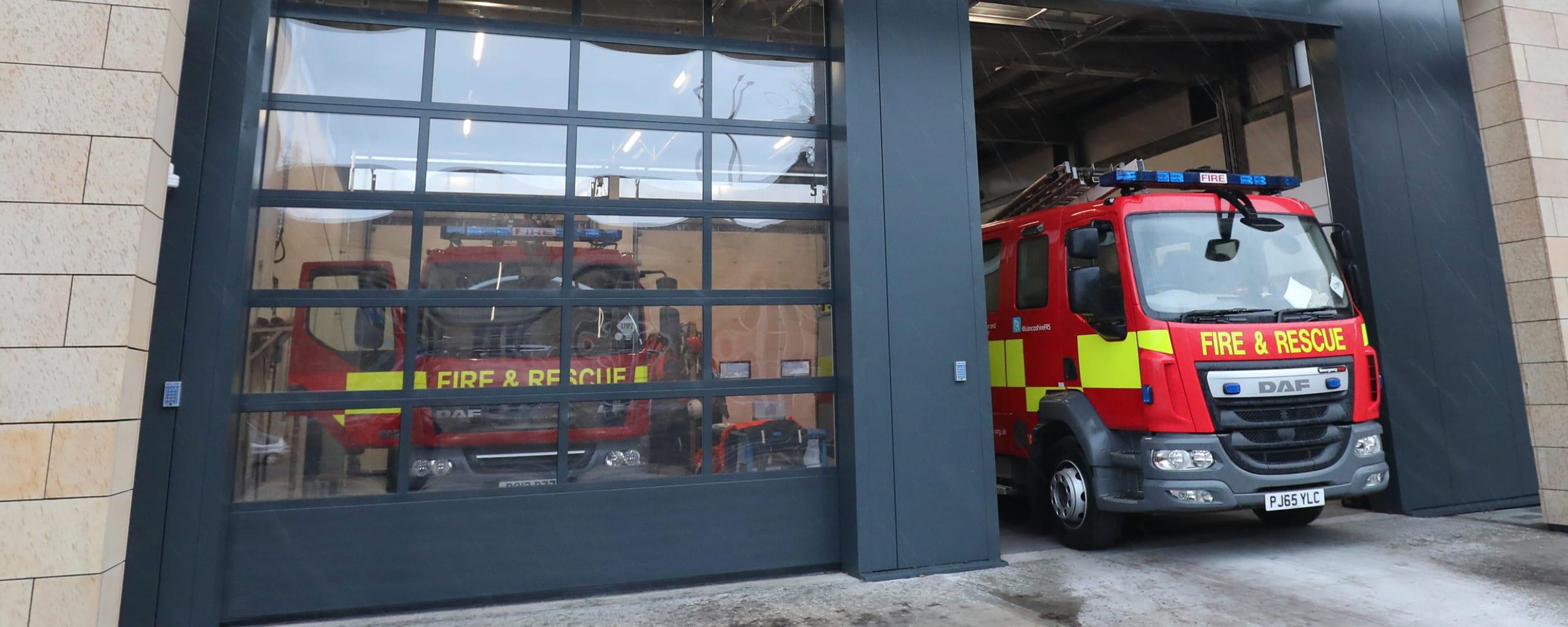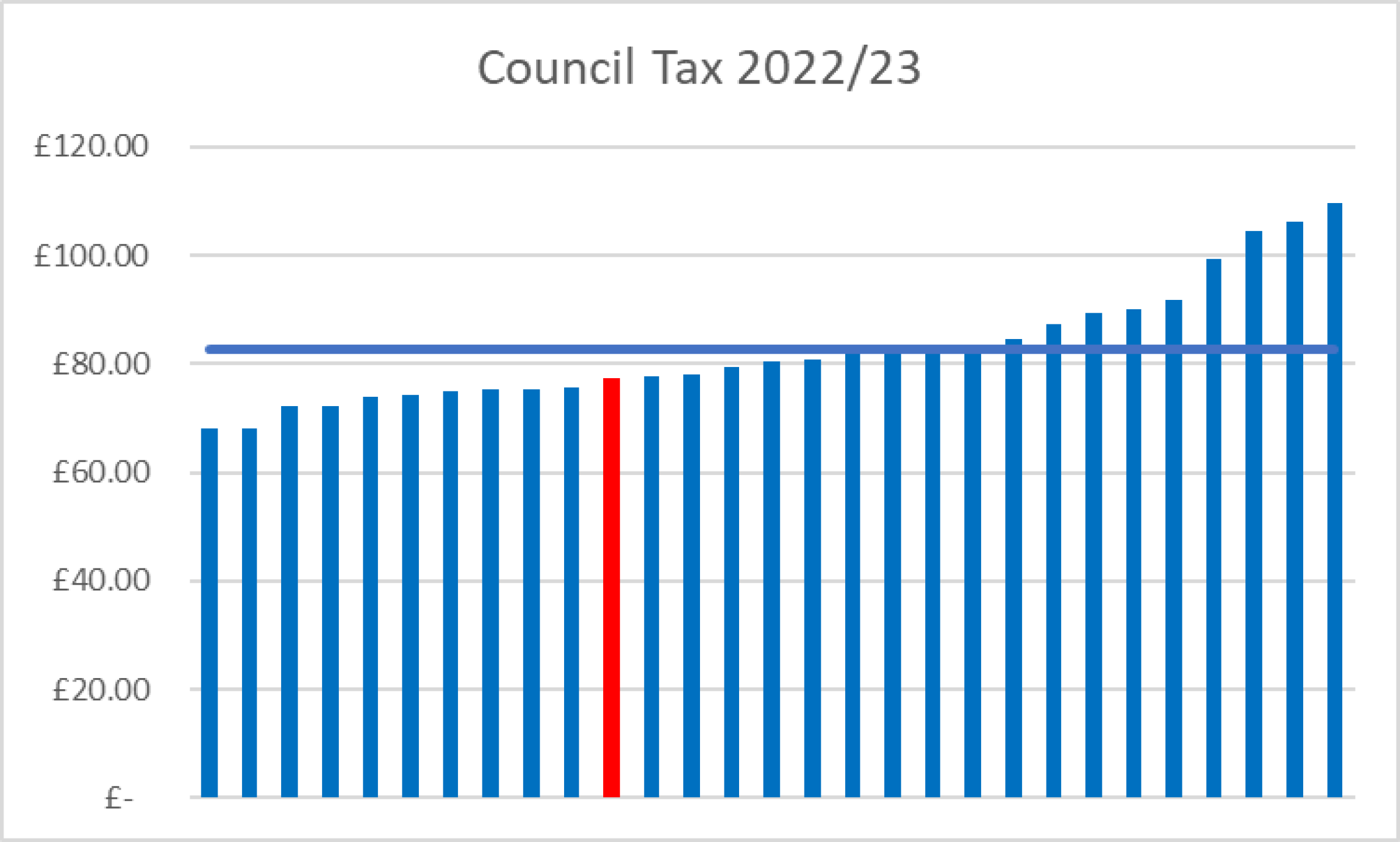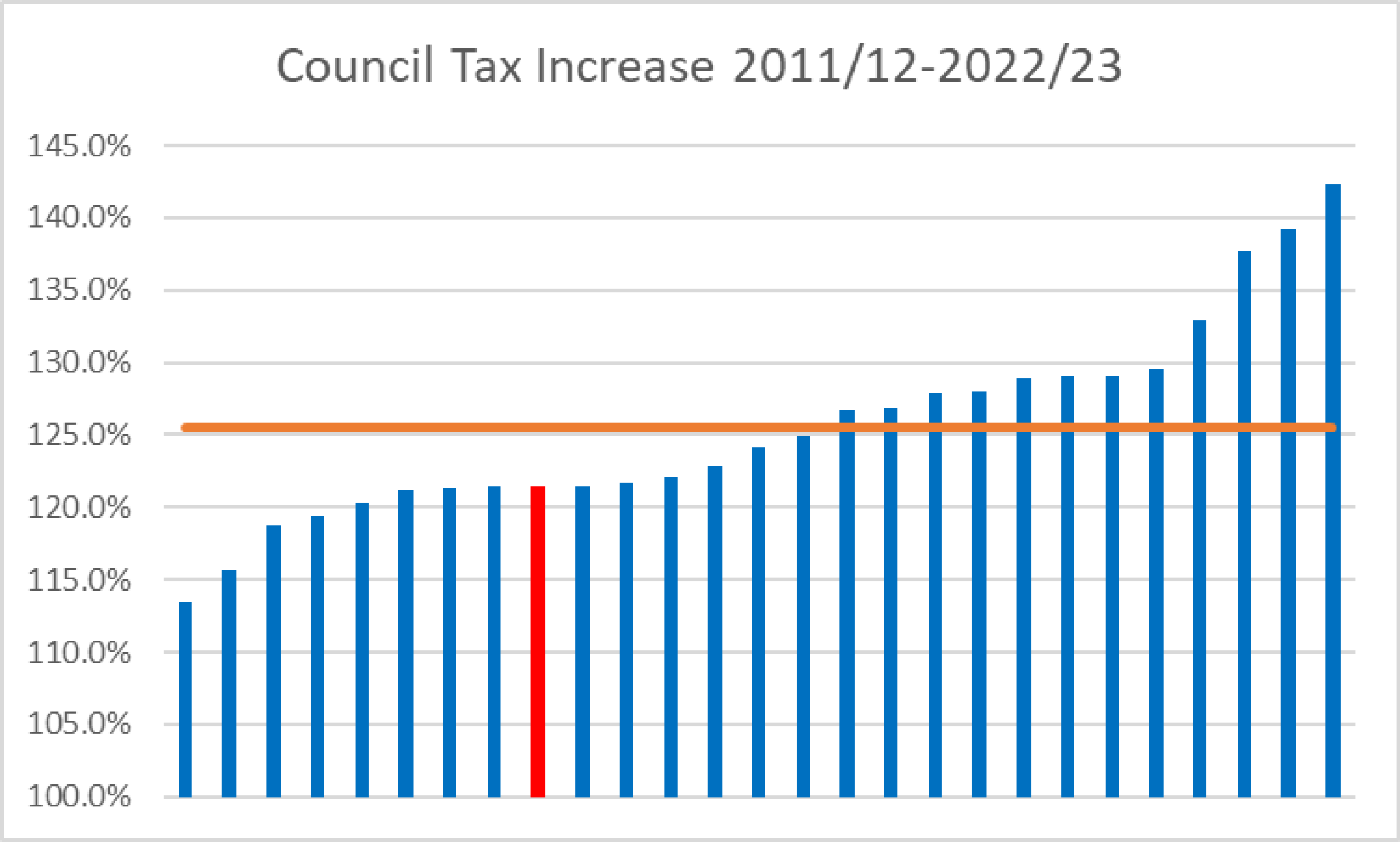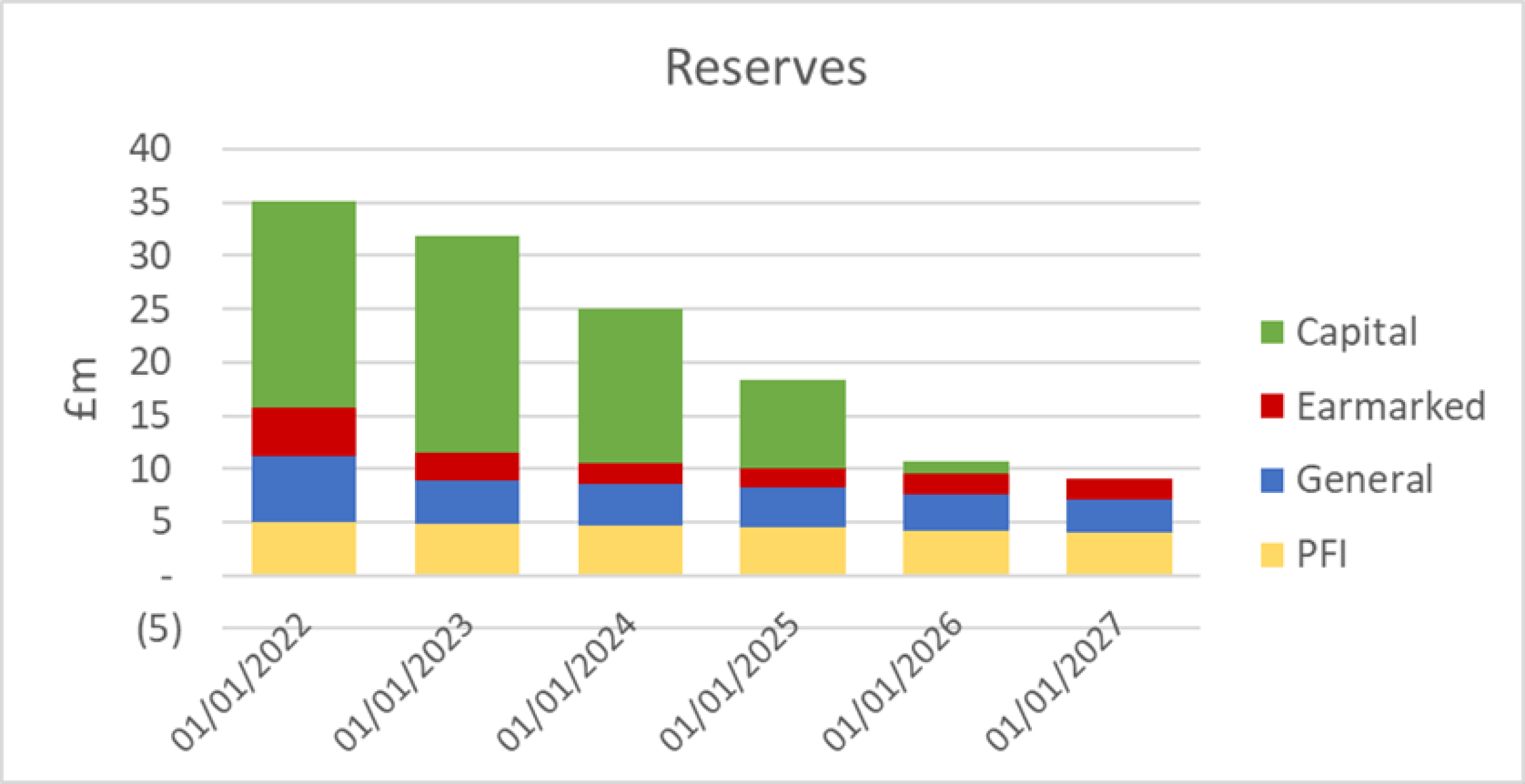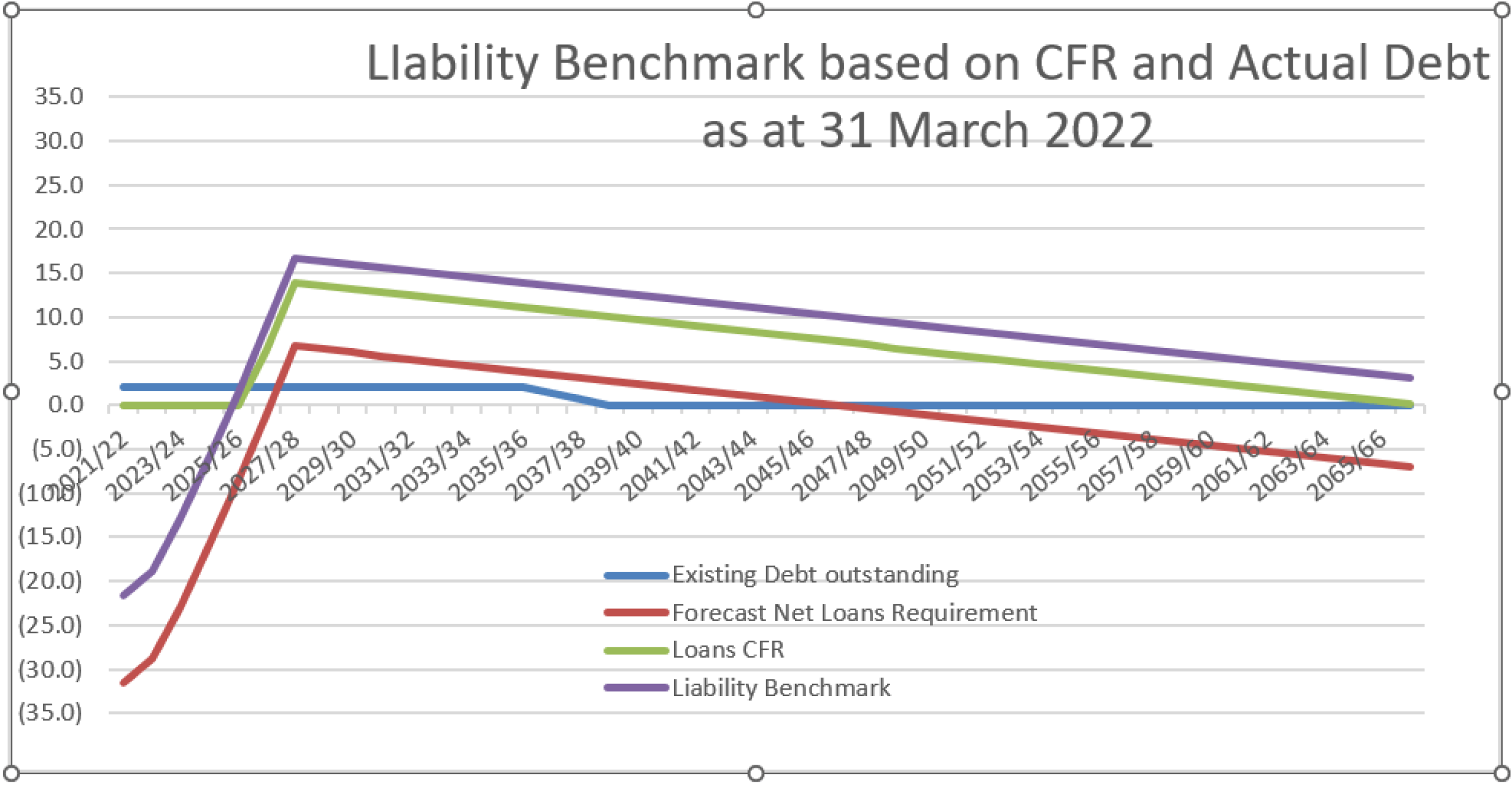Capital Strategy/Budget 2023/24-2027/28
Capital Budget Strategy
The Authority’s capital strategy is designed to ensure that the Authority’s capital investment:
Assists in delivering the corporate objectives.
Provides the framework for capital funding and expenditure decisions, ensuring that capital investment is in line with priorities identified in asset management plans.
Ensures statutory requirements are met, i.e. Health and Safety issues.
Supports the Medium-Term Financial Strategy by ensuring all capital investment decisions consider the future impact on revenue budgets.
Demonstrates value for money in ensuring the Authority’s assets are enhanced/preserved
Describes the sources of capital funding available for the medium term and how these might be used to achieve a prudent and sustainable capital programme.
Managing capital expenditure
The Capital Programme is prepared annually through the budget setting process and is reported to the Authority for approval each February. The programme sets out the capital projects taking place in the financial years 2023/24 to 2027/28 and will be updated in May to reflect the effects of the final level of slippage from the current financial year (2022/23).
The majority of projects originate from approved asset management plans, subject to assessments of ongoing requirements. Bids for new capital projects are evaluated and prioritised by Executive Board prior to seeking Authority approval.
A budget manager is responsible for the effective financial control and monitoring of their elements of the capital programme. Quarterly returns are submitted to the Director of Corporate Services on progress to date and estimated final costs. Any variations are dealt with in accordance with the Financial Regulations (Section 4.71). Where expenditure is required or anticipated which has not been included in the capital programme, a revision to the Capital Programme must be approved by Resources Committee before that spending can proceed.
Proposed Capital Budget
Capital expenditure is expenditure on major assets such as new buildings, significant building modifications and major pieces of equipment/vehicles.
The Service has developed asset management plans which assist in identifying the long-term capital requirements. These plans, together with the operational equipment register have been used to assist in identifying total requirements and the relevant priorities.
Vehicles
The Fleet Asset Management plan has been used as a basis to identify the following vehicle replacement programme, which is based on current approved lives:
Vehicle Requirements (Numbers and cost by type per year)
Type of Vehicle | 2023/24 | 2024/25 | 2025/26 | 2026/27 | 2027/28 |
|---|
Pumping Appliance | 13 | – | 3 | 6 | 11 |
Climate Change Vehicle | 2 | – | – | – | – |
Command Unit | 3 | – | – | – | – |
Water Tower | 2 | – | – | – | – |
Aerial appliance | 1 | – | – | – | – |
All-Terrain Vehicle | 1 | – | – | – | – |
Prime mover | 2 | – | – | – | – |
Pod | 3 | – | – | – | 1 |
Operational Support Vehicles | 37 | 20 | 12 | 16 | 18 |
| 64 | 20 | 15 | 22 | 30 |
| Budget (£m) | | | | |
Pumping Appliance | 1.930 | – | 0.660 | 1.320 | 2.420 |
Climate Change Vehicle | 0.500 | – | – | – | – |
Command Unit | 0.715 | – | – | – | – |
Water Tower | 1.027 | – | – | – | – |
Aerial appliance | 0.534 | – | – | – | – |
All-Terrain Vehicle | 0.018 | – | – | – | – |
Prime mover | 0.260 | – | – | – | – |
Pod | 0.083 | – | – | – | 0.030 |
Operational Support Vehicles | 1.030 | 0.678 | 0.315 | 0.512 | 0.584 |
| 6.097 | 0.678 | 0.975 | 1.832 | 3.034 |
(Note several of the vehicles shown in 23/24 have already been ordered and are subject to phased payment, hence the cost shown is the element which is due in 23/24).
Numbers are based on order date. Several of the vehicles have long lead times, and stage payments, hence the actual timing of spend is subject to change, with any deliveries spanning across years inevitably resulting in the need to move spend between years, usually this will be in the form of slippage into subsequent years, but occasionally there will be a need to pull budget forward to reflect an earlier delivery/stage completion date. This will be reported to Resources Committee as delivery dates are agreed.
All vehicles are replacements for existing vehicles, although in the case of the Water Towers and Climate Change vehicles these are in lieu of standard pumping appliances.
It is worth noting that LFRS currently has several vehicles provided and maintained by Government under New Dimensions (5 Prime Movers and 1 Utility Terrain Vehicle), which under LFRS replacement schedules would be due for replacement during the period of the programme. However, our understanding is that Government will issue replacement vehicles if they are beyond economic repair, or if the national provision requirement changes. Should LFRS be required to purchase replacement vehicles, grant from Government may be available to fund them. Based on the current position, we have not included these vehicles (or any potential grant) in our replacement plan.
In addition, Fleet Services continue to review future requirements for the replacement of all vehicles in the portfolio, hence there may be some scope to modify requirements as these reviews are completed, and future replacement programmes will be adjusted accordingly. It is worth noting that as electric vehicles continue to develop we will consider the suitability of these for future replacements which, based on current price differentials, will increase the costs shown above.
Operational Equipment
With the exception of Body Armour all requirements are replacements for existing end of life equipment: Each of these groups of assets is subject to review prior to replacement, which may result in a change of requirements or the asset life.
Equipment Requirements (Cost per year)
Summary | 2023/24 £m | 2024/25 £m | 2025/26 £m | 2026/27 £m | 2027/28 £m |
|---|
Replacement of Existing Equipment | | | | | |
Thermal Imaging Cameras | 0.325 | – | – | – | – |
Breathing Apparatus (BA) and Telemetry equipment | – | – | 1.000 | 0.900 | 0.320 |
Cutting and extrication equipment | 0.750 | 0.750 | – | – | – |
Disposable Gas Tight suits | | 0.042 | | | |
New Equipment | | | | | |
Body Armour | 0.250 | | | | |
| 1.325 | 0.792 | 1.000 | 0.900 | 0.320 |
The replacement Breathing Apparatus project is in its early stages. Until such time as actual requirements in terms of type, numbers, telemetry and communications are known we will not be in a position to produce a more accurate cost or timing projection, however we currently anticipate some phasing of the implementation, hence costs are spread over 3 years. This may change as we progress through the project.
Body armour requirements are subject to a trial and hence requirements may change following the outcome of this.
ICT
The spend is on replacement/upgraded systems. All replacements identified in the programme will be subject to review, with both the requirement for the potential upgrade/replacement and the cost of such being revisited prior to any expenditure being incurred.
ICT Requirements (Cost per year)
Summary | 2023/24 £m | 2024/25 £m | 2025/26 £m | 2026/27 £m | 2027/28 £m |
|---|
Replace Existing Systems | | | | | |
Pooled PPE system | – | 0.100 | – | – | – |
Stock Management system | – | 0.100 | – | – | – |
Asset Management system | 0.100 | – | – | – | – |
HFSC referral system | 0.100 | – | – | – | – |
Fire Risk Management System | 0.100 | – | – | – | – |
Rota management package (WT/On call) | – | 0.100 | – | – | – |
Storage Area Network | – | 0.200 | 0.090 | – | – |
GIS Risk Info | – | 0.100 | – | – | – |
WAN | – | – | 0.450 | – | – |
IRS/MIS | – | – | 0.050 | – | – |
Firewall | 0.235 | – | – | – | – |
Wi-Fi | 0.135 | – | – | – | – |
New Operational Communications | | | | | |
Digitisation of Fire appliances – additional VMDS units | 0.254 | – | – | – | – |
Replace Operational Communications | | | | | |
ESMCP (Airwave replacement – assumed funded by grant) | – | – | 1.000 | – | – |
Incident Ground Radios | 0.230 | – | – | – | – |
UPS | – | – | – | – | 0.060 |
Total ICT Programme | 1.219 | 0.500 | 1.690 | – | 0.060 |
(Note HR & Payroll and the Finance system are both outsourced and form part of on-going SLAs, as such no allowance has been made for their future replacement, as it is assumed that any replacement costs are covered by the existing SLA. If at some point the Service moved away from the current SLAs, then we will incur costs in implementing new systems. We have not allowed for this).
Buildings
The only new scheme included in the above programme is Estate Improvements provision, which is a sum to enable us to make improvements to the estates on an on-going basis.
Building Requirements (Cost per year)
Summary | 2023/24 £m | 2024/25 £m | 2025/26 £m | 2026/27 £m | 2027/28 £m |
|---|
New Schemes | | | | | |
Estate Improvements | 0.250 | 0.250 | 0.250 | 0.250 | 0.250 |
Existing Schemes | | | | | |
Upgrade WYLFA Prop | 0.125 | | | | |
W30 – Blackpool Welfare | 0.500 | – | – | – | – |
Drill tower replacements (notional 4 per year) | 0.600 | 0.600 | 0.600 | 0.600 | 0.600 |
C50 – Preston replacement station | – | 5.000 | 5.000 | – | – |
STC Props | – | 2.500 | 2.500 | – | – |
SHQ relocation | – | – | – | 7.500 | 7.500 |
| 1.475 | 8.350 | 8.350 | 8.350 | 8.350 |
In terms of all the building proposals it must be noted that we are still developing requirements/designs hence costings are indicative only.
The replacement of Preston Fire Station is subject to the outcome of a review of response provision within the Preston area and does not include any allowance for acquisition of a new site (should one be required), as it is assumed this will be offset by the sale of the existing site.
Th investment in Service Training Centre (STC) Props reflects the need to upgrade/replace some of the training props at STC which are nearing end of life.
The project to replace SHQ has been pushed back to 26/27, as a definitive decision on the project is required in order to further develop cost and timing. If the relocation does not go ahead, then we will need to review the existing provision and the need to undertake improvement works to ensure appropriate accommodation provision for the next 10 years.
The budget does not include any allowance for updating our property infrastructure to meet future Electric Vehicle charging requirements. This is estimated at £70k per site, but we need to develop a plan to roll out new electric vehicles in line with future regulations and modify sites to cope with this. It is unrealistic to implement this on a big bang approach, hence some phasing of this roll out will need to be incorporated into future capital programmes.
Total Capital Requirements
The following table details capital requirements over the five-year period:
Summary Capital Requirements
Summary | 2023/24 £m | 2024/25 £m | 2025/26 £m | 2026/27 £m | 2027/28 £m | Total £m |
|---|
Vehicles | 6.097 | 0.678 | 0.975 | 1.832 | 3.034 | 12.616 |
Operational Equipment | 1.325 | 0.792 | 1.000 | 0.900 | 0.320 | 4.337 |
IT Equipment | 1.219 | 0.500 | 1.690 | – | 0.060 | 3.469 |
Buildings | 1.475 | 8.350 | 8.350 | 8.350 | 8.350 | 34.875 |
| 10.116 | 10.320 | 12.015 | 11.082 | 11.764 | 55.297 |
Capital Funding
Capital expenditure can be funded from the following sources:
Prudential Borrowing
The Prudential Code gives the Authority increased flexibility over its level of capital investment and much greater freedom to borrow, should this be necessary, to finance planned expenditure. However, any future borrowing will incur a financing charge against the revenue budget for the period of the borrowing.
Given the financial position of the Authority we have not needed to borrow since 2007 and repaid a large proportion of our borrowing in October 2017.
Capital Grant
Capital grants are received from other bodies, typically the Government, in order to facilitate the purchase/replacement of capital items.
There is an expectation that the ESMCP project costs will be offset by capital grant, however we have not had any confirmation of this.
To date no other capital grant funding has been made available, nor has any indication been given that capital grant will be available in future years, and hence no allowance has been included in the budget.
Capital Receipts
Capital receipts are generated from the sale of surplus property and vehicle assets, with any monies generated being utilised to fund additional capital expenditure either in‑year or carried forward to fund the programme in future years.
The Authority expects to hold £1.7m of capital receipts as at 31 March 2023. This will be fully utilised during the 5-year programme.
It is worth highlighting that the relocation of SHQ would provide an opportunity to sell part or all of the site, subject to any changes at Fulwood Fire Station, however any sale proceeds will not be realised within the timeframe of this programme.
Capital Reserves
Capital Reserves have been created from under spends on the revenue budget in order to provide additional funding to support the capital programme in future years. The Authority expects to hold £18.6m of capital reserves as at 31 March 2023. Over the life of the programme we anticipate utilising all these reserves.
Revenue Contribution to Capital Outlay (RCCO)
Any revenue surpluses may be transferred to a Capital Reserve in order to fund additional capital expenditure either in‑year or carried forward to fund the programme in future years.
As referred to in the Revenue Budget report, elsewhere on this agenda, the revenue contribution to capital is currently set at £4.0m per year, giving total funding of £20.0m over the 5 years. This reduces the need to borrow and hence the capital financing charge associated with this.
Drawdown of Earmarked Reserves
£0.4m has been drawn down from the Innovation Reserve/Earmarked Reserve to fund the digitisation of fire appliances project and part of the WYLFA prop upgrade.
Drawdown of General Reserves
No allowance has been made for the drawdown of any of the general reserve.
Total Capital Funding
The following table details available capital funding over the five-year period:
Table 8 Summary Capital Funding
| 2023/24 | 2024/25 | 2025/26 | 2026/27 | 2027/28 | TOTAL |
| £m | £m | £m | £m | £m | £m |
Capital Grant | – | – | 1.000 | – | – | 1.000 |
Capital Receipts | 1.683 | – | – | – | – | 1.683 |
Capital Reserves | 4.069 | 6.320 | 7.015 | 1.197 | – | 18.601 |
Earmarked Reserves | 0.364 | – | – | – | – | 0.364 |
Revenue Contributions | 4.000 | 4.000 | 4.000 | 4.000 | 4.000 | 20.000 |
| 10.116 | 10.320 | 12.015 | 5.197 | 4.000 | 41.648 |
Summary Programme
Based on the draft capital programme as presented we have a shortfall of £13.6m:
Summary Capital Requirements and Funding Available
Summary | 2023/24 £m | 2024/25 £m | 2025/26 £m | 2026/27 £m | 2027/28 £m | Total £m |
|---|
Capital Requirements | 10.116 | 10.320 | 12.015 | 11.082 | 11.764 | 55.297 |
Capital Funding | 10.116 | 10.320 | 12.015 | 5.197 | 4.000 | 41.648 |
Surplus/(Shortfall) | – | – | – | (5.885) | (7.764) | (13.649) |
This show there is a significant funding gap.
Impact on the Revenue budget
The capital programme shows the Authority utilising all of its capital reserves and receipts part way through 2026/27, meaning that the remainder of the capital programme will need to be met from either capital grant (if available), additional revenue contributions or from new borrowing.
The draft budget as set out shows a need to borrow £13.6m. As we have already set aside £2.0m of funds, this would entail £11.6m of new borrowing. This has a significant impact on the revenue budget, in terms of interest payments and setting aside a sum equivalent to the Minimum Revenue Provision (MRP), as shown in the table below. (Note both the interest rate and the life over which MRP is charged are subject to change.)
Cost of Borrowing
Summary | 26/27 Impact | 27/28 Impact |
|---|
Interest per annum | £88k | £350k |
MRP (MRP is only charged in year after purchase) | – | £118k |
Total | £88k | £468k |
The cost of this borrowing is incorporated into the revenue budget in future years, but the full year effect of this borrowing will not be felt until 28/29, where the total cost would be £0.8m.
Programme Assumptions
It is also worth highlighting that the programme is based around a number of assumptions which could change:
All costings are subject to refinement during the design and procurement phases;
Vehicle replacements are based on the Fleet Asset management Plan, however the scale of replacements in 23/24 is extremely high and hence some slippage is likely, furthermore whilst we have extended the life of appliances to 13 years a review of our scope to extend this further is underway;
New Dimensions vehicle replacements are expected to be carried out by Government; however this position may change;
No allowance has been made for developments in operational equipment, which may justify future investments. At the present time this would need to be met from the Innovation reserve, of which we have £0.25m remaining, or from the revenue budget;
ICT software replacements are subject to review prior to replacement, which has led in the past to significant slippage;
Operational Communications replacements (ESMCP) are subject to a great deal of uncertainty in terms of both timing and costs as they are related to a national replacement project, in addition there may be grant funding available for this which is also unknown at this time;
The costs and timing for replacement of Preston Fire Station, investment in STC Props and relocation of SHQ are estimates only at this stage;
Capital grant may be made available in future years, in order to assist service transformation and greater collaboration, although this is felt to be unlikely.
Summary
Without borrowing the current programme is not balanced, as such the Authority will need to borrow £11.6m over the life of the programme. The cost of this borrowing is incorporated into the revenue budget, however this only impacts the last year of the Medium Term Financial Strategy. Given this the Treasurer considers that the programme is prudent, sustainable and affordable in the medium term.
As noted above, should any of the funding assumptions or expenditure items within the programme change, this will have an impact on the overall affordability of the programme.
Prudential Indicators
The Prudential Code gives the Authority increased flexibility over its level of capital investment and much greater freedom to borrow, should this be necessary, to finance planned expenditure. However, in determining the level of borrowing, the Authority must prepare and take account of a number of Prudential Indicators aimed at demonstrating that the level and method of financing capital expenditure is affordable, prudent and sustainable. These Indicators are set out at Appendix 1, along with a brief commentary on each. The Prudential Indicators are based on the programme set out above. These indicators will be updated to reflect the final capital outturn position and reported to the Resources Committee at the June meeting.
The main emphasis of these Indicators is to enable the Authority to assess whether its proposed spending and its financing is affordable, prudent and sustainable and in this context, the Treasurer’s assessment is that, based on the indicators, this is the case for the following reasons:
In terms of prudence, the level of capital expenditure, in absolute terms, is considered to be prudent and sustainable at an annual average of £10.5m over the 3-year period. The trend in the capital financing requirement and the level of external debt are both considered to be within prudent and sustainable levels. Whilst new borrowing is required this only occurs in the last two years of the programme.
In terms of affordability, the negative ratio of financing costs is attributable to interest receivable exceeding interest payable and Minimum Revenue Provision payments in each of the three years. This reflects the effect of the previous decision to set aside monies to repay debt.
Capital Expenditure and Financing
The objective in consideration of the affordability of the Authority’s capital plans is to ensure that total capital expenditure remains within sustainable limits.
Capital expenditure 2021/22 to 2025/26
The actual expenditure for 2020/21 and forecast expenditure 2021/22, and estimates of capital expenditure to be incurred in future years, as per the proposed capital programme and allowing for slippage from the 2021/22 programme, are:
Capital expenditure by year
Summary | 2021/22 Actual £m | 2022/23 Forecast £m | 2023/24 Estimate £m | 2024/25 Estimate £m | 2025/26 Estimate £m |
|---|
Capital Expenditure | 3.350 | 3.271 | 10.116 | 10.320 | 12.015 |
This indicator for 2022/23 will also be updated at the year-end to reflect actual capital expenditure incurred.
Capital financing 2021/22 to 2025/26
All capital expenditure must be financed, either from external resources (government grants and other contributions), the Authority’s own resources (revenue contributions, reserves and capital receipts) or debt (borrowing, leasing and Private Finance Initiative). The planned financing of the above expenditure is as follows:
Capital financing by year
Summary | 2021/22 Actual £m | 2022/23 Forecast £m | 2023/24 Estimate £m | 2024/25 Estimate £m | 2025/26 Estimate £m |
|---|
Grants and Contributions | – | – | – | – | 1.000 |
Own Resources | 3.350 | 3.271 | 10.116 | 10.320 | 11.015 |
Debt | – | – | – | – | – |
Total | 3.350 | 3.271 | 10.116 | 10.320 | 12.015 |
Borrowing Strategy
Capital Financing Requirement (CFR) 2021/22 to 2025/26
Capital financing requirements by year
Summary | 2021/22 Actual £m | 2022/23 Forecast £m | 2023/24 Estimate £m | 2024/25 Estimate £m | 2025/26 Estimate £m |
|---|
Capital Financing Requirement (Debt only) | – | – | – | – | – |
The capital financing requirement measures the authority’s underlying need to borrow for a capital purpose and reflects the effects of previous investment decisions as well as future planned expenditure. In accordance with best professional practice, the Authority does not associate borrowing with particular items or types of expenditure. External borrowing arises as a consequence of all the financial transactions of the Authority and not simply those arising from capital spending, but in the medium term the Treasurer anticipates that borrowing is undertaken for capital purposes only. These capital financing requirements then feed through into the anticipated level of external debt as reported in the Treasury Management Strategy elsewhere on the agenda but repeated here for completeness. As reported in the Treasury Management Strategy the Authority has made additional MRP provisions since 2010/11 in order to reduce capital financing requirements to nil.
Authorised limit and operational boundary for its total external debt
In respect of its external debt the Authority is required to set two limits over the three-year period: an authorised limit and an operational boundary. Both are based on the planned capital expenditure, estimates of the capital financing requirement and estimates of cash flow requirements for all purposes. It should be noted that these limits have then been uplifted to include potential borrowing associated with a future decision to go ahead with a replacement Headquarters.
The operational boundary is based on the most likely, but not worst case, scenario and represents the maximum level of external debt projected by these estimates. However, unexpected cashflow movements can occur during the year and some provision needs to be made in setting the authorised limit to deal with this.
The two indicators are as follows:
Borrowing Limits by year
Summary | 2021/22 Actual £m | 2022/23 Forecast £m | 2023/24 Estimate £m | 2024/25 Estimate £m | 2025/26 Estimate £m |
|---|
Authorised Limit for External Debt | | | | | |
Borrowing | 6,000 | 4,000 | 4,000 | 4,000 | 4,000 |
Other long-term liabilities | 30,000 | 30,000 | 30,000 | 30,000 | 30,000 |
Total | 36,000 | 34,000 | 34,000 | 34,000 | 34,000 |
Operational Boundary for External Debt | | | | | |
Borrowing | 3,000 | 3,000 | 3,000 | 3,000 | 3,000 |
Other long-term liabilities | 17,000 | 16,000 | 16,000 | 16,000 | 15,000 |
Total | 20,000 | 19,000 | 19,000 | 19,000 | 18,000 |
Gross debt and the Capital Financing Requirement
The Prudential Code requires that debt does not exceed the Capital Financing Requirement except in the short term, in order to ensure that over the medium term that debt will only be for capital purposes. This is a key indicator of prudence.
As reported in the Treasury Management Strategy, the Authority has made additional MRP provisions since 2010/11 in order to reduce Capital Financing Requirements and hence the charges associated with this, and in order to set monies aside to pay off debt as it matures. It used these monies to pay off £3.2m of debt in October 2017. As a result of this the level of debt now held, £2.0m, exceeds the capital financing requirement, has been zero after MRP payments made during 2019/20: –
Table 16 Debt and the Capital Financing Requirements by year
Summary | 2021/22 Actual £m | 2022/23 Forecast £m | 2023/24 Estimate £m | 2024/25 Estimate £m | 2025/26 Estimate £m |
|---|
Debt | 2.000 | 2.000 | 2.000 | 2.000 | 2.000 |
Capital Financing Requirement | – | – | – | – | – |
Revenue Budget Implications
Although capital expenditure is not charged directly to the revenue budget, interest payable on loans and Minimum Revenue Provision (MRP, or debt repayments) are charged to revenue, offset by interest receivable. The net annual charge is known as financing costs.
As shown within the Treasury Management Strategy report elsewhere on the agenda, the financing costs are as follows:
Impact on Revenue Budget by year
Summary | 2021/22 Actual £m | 2022/23 Forecast £m | 2023/24 Estimate £m | 2024/25 Estimate £m | 2025/26 Estimate £m |
|---|
Interest payable | 0.090 | 0.090 | 0.090 | 0.090 | 0.090 |
MRP | 0.010 | 0.010 | – | – | – |
Interest receivable | (0.206) | (0.770) | (1.300) | (1.000) | (0.650) |
Net financing costs | (0.106) | (0.680) | (1.210) | (0.910) | (0.560) |
Proportion of financing costs to net revenue stream
Proportion of financing costs to net revenue stream by year
Summary | 2021/22 Actual £m | 2022/23 Forecast £m | 2023/24 Estimate £m | 2024/25 Estimate £m | 2025/26 Estimate £m |
|---|
Net financing costs | (£0.106m) | (£0.680m) | (£1.210m) | (£0.910m) | (£0.560m) |
Ratio of Financing Costs to Net Revenue Stream | (0.18%) | (1.08%) | (1.85%) | (1.28%) | (0.76%) |
The negative percentage of this indicator reflects the low level of underlying debt (following the repayment of the majority of our long-term loans during 2017/18) for the Authority in comparison to the authority’s level of investment income, i.e. interest receivable is significantly higher than interest payable.


